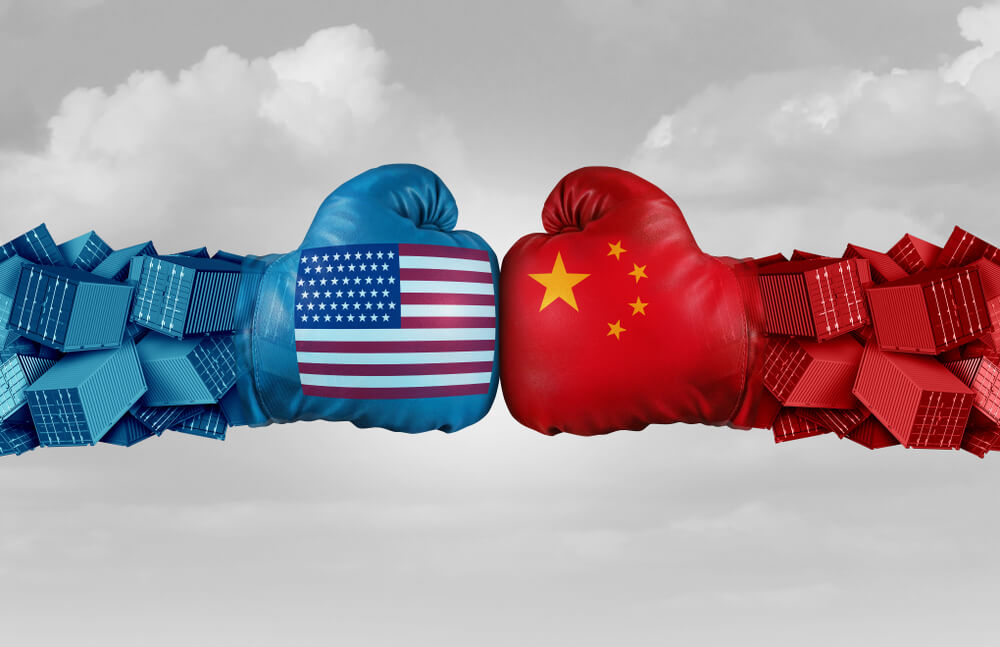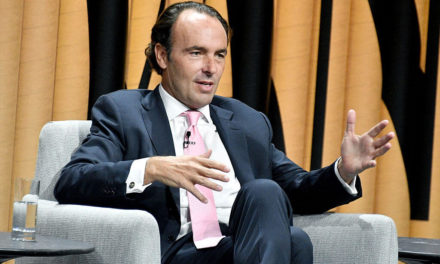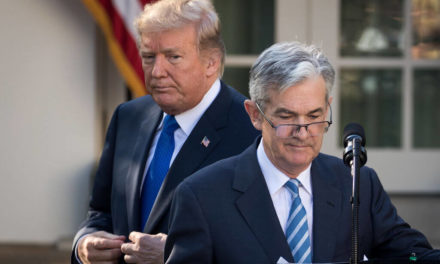President Donald Trump acknowledged his aggressive China trade policies may mean economic pain for Americans but insisted they’re needed for more important long-term benefits. He contended he does not fear a recession but is nonetheless considering new tax cuts to promote growth.
Asked if his trade war with China could tip the country into recession, he brushed off the idea as “irrelevant” and said it was imperative to “take China on.”
“It’s about time, whether it’s good for our country or bad for our country short term,” Trump said on Tuesday.
Paraphrasing a reporter’s question, Trump said, “Your statement about, ‘Oh, will we fall into a recession for two months?’ OK? The fact is somebody had to take China on.”
The Republican president indicated that he had no choice but to impose the tariffs that have been a drag on U.S. manufacturers, financial markets and, by some measures, American consumers.
China, though, said trade with the U.S. has been “mutually beneficial” and appealed to Washington to “get along with us.” A foreign ministry spokesman, Geng Shuang, on Wednesday expressed hope Washington can “meet China halfway” in settling disagreements.
Trump was clear that he didn’t think the U.S. is at risk of a recession and that a boom was possible if the Federal Reserve would slash its benchmark interest rate.
“We’re very far from a recession,” Trump said. “In fact, if the Fed would do its job, I think we’d have a tremendous spurt of growth, a tremendous spurt.”
Yet he also said he is considering a temporary payroll tax cut and indexing to inflation the federal taxes on profits made on investments, moves designed to stimulate faster growth. He downplayed any idea that these thoughts indicate a weakening economy and said, “I’m looking at that all the time anyway.”
Asked about his remarks, White House spokesman Judd Deere said, “The president does not believe we are headed for a recession. The economy is strong because of his policies.”
Trump faces something of an inflection point on a U.S. economy that appears to be showing vulnerabilities after more than 10 years of growth. Factory output has fallen and consumer confidence has waned as he has ramped up his trade war with China. In private, Trump and his advisers have shown concern that a broader slowdown, if not an outright recession, could arrive just as he is seeking reelection based on his economic record.
Trump rattled the stock and bond markets this month when he announced plans to put a 10% tax on $300 billion worth of Chinese imports. The market reaction suggested a recession might be on the horizon and led Trump to delay some of the tariffs that were slated to begin in September, though 25% tariffs are already in place for $250 million in other Chinese goods.
The world economy has been slowing in recent months, and recent stock market swings have added to concerns that the U.S. economy is not immune. A new survey Monday showed a big majority of economists expect a downturn to hit by 2021.
Addressing that possibility, Trump focused anew on pressuring the Federal Reserve to cut interest rates. Presidents have generally avoided criticizing the Federal Reserve publicly, but Trump has shown no inclination to follow that lead. Rather, he’s positioning Fed Chairman Jerome Powell to take the fall if the economy swoons.
“I think that we actually are set for a tremendous surge of growth, if the Fed would do its job,” Trump said. “That’s a big if.”
Trump recommended a minimum cut of a full percentage point in the coming months.
© The Associated Press. All rights reserved.




